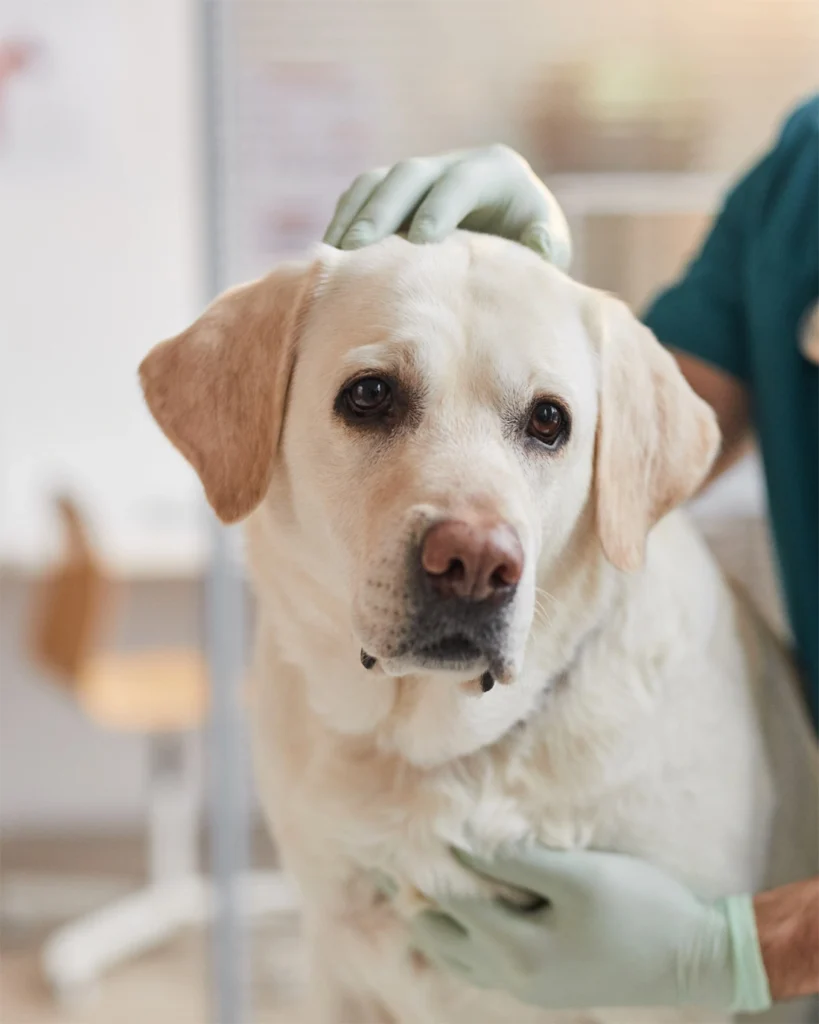What Is Vaccination for Pets?
Vaccination is one of the most important parts of preventative veterinary care. Vaccines train your pet’s immune system to recognize and fight off infectious diseases before they cause illness. By introducing a safe version of a virus or bacteria—through killed, modified, or partial pathogens—the immune system learns to respond without your pet becoming sick.
Key benefits of vaccination for pets:
- Protects against life-threatening diseases
- Reduces disease outbreaks in the community
- Protects human health (for zoonotic diseases like rabies and leptospirosis)
- Often legally required (e.g., rabies vaccine for dogs and cats)
Vaccines for Dogs
Dogs are routinely vaccinated against several highly contagious and potentially fatal diseases. These vaccines are divided into core (recommended for all dogs) and non-core (recommended based on lifestyle and risk factors).
- Rabies: A fatal viral infection of the nervous system. Rabies is spread through bites or saliva from infected animals, and once clinical signs develop—such as aggression, paralysis, or seizures—death is inevitable. Because rabies is zoonotic (it can spread to humans), vaccination is legally required in nearly all areas and plays a critical role in both animal and public health.
- Distemper: A highly contagious virus that targets the respiratory, gastrointestinal, and nervous systems. Symptoms range from coughing and diarrhea to seizures and neurological decline. Spread through respiratory droplets, distemper remains a serious threat, particularly in unvaccinated puppies. Vaccination dramatically reduces outbreaks.
- Parvovirus: Often shortened to “parvo,” this virus attacks rapidly dividing cells, particularly in the intestines and bone marrow. It causes bloody diarrhea, severe vomiting, dehydration, and immune suppression, and it is often fatal in young dogs. Because the virus is extremely hardy in the environment, puppy vaccination is essential to prevent disease.
- Adenovirus (Canine Hepatitis): Protects against a virus that damages the liver, kidneys, and eyes. Infection is spread through contact with urine, feces, or saliva.
Non-Core but Commonly Recommended Dog Vaccines
- Bordetella (Kennel Cough): Caused by Bordetella bronchiseptica, this bacterium is a leading cause of canine infectious respiratory disease. Dogs develop a harsh, hacking cough and may progress to pneumonia in severe cases. The vaccine is especially important for dogs that visit boarding facilities, dog parks, or grooming salons.
- Leptospirosis: A bacterial disease spread through water or soil contaminated with the urine of infected animals, including rodents and wildlife. Leptospirosis attacks the liver and kidneys and can cause organ failure. Because it is zoonotic, vaccination helps protect both dogs and their families.
- Lyme Disease: Caused by Borrelia burgdorferi and transmitted by ticks, Lyme disease can result in fever, lameness, joint swelling, and, in rare cases, kidney damage. Vaccination is recommended in regions where tick exposure is common, such as the Northeast and Midwest.
Vaccines for Cats
Like dogs, cats also require vaccination to protect against several viral and bacterial diseases. The most important vaccines are considered core, while others are recommended depending on lifestyle and exposure risk.
Core Vaccines for Cats
- Rabies: As in dogs, rabies in cats is caused by a fatal virus of the nervous system that can spread to humans. Vaccination is legally required in most regions and is critical for public health.
- Feline Herpesvirus-1 (FHV-1): The cause of feline viral rhinotracheitis, one of the most common upper respiratory infections in cats. Symptoms include sneezing, eye discharge, nasal congestion, and conjunctivitis. Vaccination does not eliminate infection but reduces the severity of symptoms and viral shedding.
- Feline Calicivirus (FCV): Another major cause of feline upper respiratory disease. Signs include nasal congestion, oral ulcers, eye discharge, and sometimes lameness. Certain strains can cause severe, systemic disease. Vaccination helps control spread and lessen severity.
- Feline Panleukopenia (Feline Distemper): A parvovirus that is highly contagious and often fatal, particularly in kittens. It causes severe gastrointestinal disease, dehydration, fever, and suppression of white blood cells. Vaccination provides excellent protection and is considered essential for all cats.
Non-Core but Important Cat Vaccines
- Feline Leukemia Virus (FeLV): A retrovirus spread by close contact such as grooming, sharing food bowls, or bites. FeLV suppresses the immune system and increases risk for anemia, infections, and cancer. Because kittens and outdoor cats are especially vulnerable, FeLV vaccination is strongly recommended in these populations.
What to Expect After Your Pet’s Vaccination
It’s normal for pets to experience mild side effects after a vaccine, such as:
- Tiredness or mild lethargy
- Slight fever
- Decreased appetite
These signs usually resolve within a day or two and show that the immune system is working.
Rare but serious side effects (less than 1% of pets) include allergic reactions, autoimmune issues, or tumors at the injection site in cats. While important to be aware of, the benefits of vaccines far outweigh these risks.
Why Pet Vaccines Are So Important
- Protect your pet from deadly diseases
- Prevent spread of zoonotic illnesses to people
- Required for travel, boarding, and daycare
- Essential for puppies, kittens, and outdoor pets
Vaccines are one of the simplest, most effective ways to keep your pets healthy and protected.
